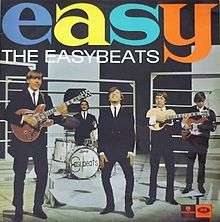
Deus
Deus (Latin pronunciation: [ˈdeːʊs]) is Latin for "god" or "deity". Latin deus and dīvus "divine", are descended from Proto-Indo-European *deiwos, "celestial" or "shining", from the same root as *Dyēus, the reconstructed chief god of the Proto-Indo-European pantheon. Compare Greek Zeus (Ζεύς dzeus; Aeolic Greek Δεύς deus) and Sanskrit देव deva. Latin dies ("day") is considered to have derived from the same PIE root that originated deus. This is to say that a celestial shining body, the Sun, gives material form to the words for "day" in the Romance Languages.
In Classical Latin, deus (feminine dea) was a general nounreferring to a deity, while in technical usage a divus or diva was a figure who had become divine, such as a divinized emperor. In Late Latin, Deus came to be used mostly for the Christian God. It was inherited by the Romance languages in French Dieu, Spanish Dios, Portuguese and Galician Deus, Italian Dio, etc, and by the Celtic languages in Welsh Duw and Irish Dia.
Latin Bible
Deus (disambiguation)
Deus is a Latin and Portuguese word for "God".
It may also refer to:
Dei is the genitive singular of deus, and occurs in:
See also

Deus (band)
Deus (styled as dEUS) is a rock band based in Antwerp, Belgium, whose only continuous members up to the present day are Tom Barman (vocals, guitars) and Klaas Janzoons (keyboards, violin). The rest of the band's line-up currently consists of drummer Stéphane Misseghers, bassist Alan Gevaert and guitarist/backing vocalist Mauro Pawlowski.
History
Formation
Formed in 1991, Deus began their career as a covers band, but soon began writing their own material. Their musical influences range from folk and punk to jazz and progressive rock. They first came to attention in Humo's Rock Rally of 1992, and after the release of the four-track EP "Zea", they were offered a recording contract with Island Records. They became the first Belgian indie act ever to sign to a major international label.
First era (1994-2000)
Deus' debut album Worst Case Scenario drew influences from Frank Zappa, Tom Waits and Captain Beefheart and was released on September 16, 1994 to critical acclaim. Shortly after followed the release of a highly experimental mail-order-only album entitled My Sister = My Clock, consisting of thirteen songs contained on one physical track. Their next effort In a Bar, Under the Sea followed two years later. The Ideal Crash (1999) saw the manic eccentricity channeled into a slightly more accessible package. Altogether, the band's first three albums (discounting My Sister = My Clock) sold over 750,000 copies worldwide and gathered them a cult following.

Easy!
Easy! (Italian: Scialla!) is a 2011 Italian comedy film directed by Francesco Bruni.
Cast
Plot
A retired teacher and novelist (Bruno), who survives by private tutoring, is currently writing the biography for former adult star (Tina). He then discovers that one of his students (Luca), a teenager who is on the brink of failure at school, is actually his son.
Music
The twelve tracks of the original soundtrack were produced by The Ceasars and sung by the Italian rapper Amir Issaa, then published by EMI Music Publishing Italy. The official videoclip of the film, directed by Gianluca Catania, won the 2012 Roma Videoclip Award. The Ceasars and Amir were nominated for the 2012 David di Donatello Award and Nastro d'Argento (silver ribbons) for the song “Scialla” and won the 2012 “Premio Cinema Giovane” for the best original soundtrack.
Easy
Easy may refer to:
Film and TV
Companies
Music
Albums
Songs

Easy (The Easybeats album)
Easy is a studio album by The Easybeats, released on 23 September 1965. It was later reissued by Repertoire Records and included eight new tracks. The re-release would not be available outside of Australia until the 1990s.
Track listing
All songs written by Stevie Wright and George Young except as noted.
Additional Repertoire Records tracks
Podcasts:

-
by Justice
-
by Justice
-
by Yesudas
-
by Yesudas
-
by Yesudas
-
by Yesudas
-
by Yesudas
-
by Yesudas
-
by Yesudas
-
by Yesudas
-
by Yesudas
-
by Yesudas
-
by Yesudas
-
by Yesudas
-
by Yesudas
-
by Yesudas
-
by Yesudas
-
by Yesudas
-
by Yesudas
-
by Yesudas
-
by Yesudas
-
by Yesudas
-
by Yesudas
-
by Yesudas
-
by Yesudas
-
by Yesudas
-
by Yesudas
-
by Yesudas
-
by Yesudas
-
by Yesudas
-
by Yesudas
Ohio
by: JusticeOhio
Tennessee
California
Tennessee
Bring it ooooooon
Bring it oooooon
Bring it oooooooonnn!
Bring it ooooooahhon
Ohio
Tennessee
California
Tennessee
Bring it ooooooon
Bring it oooooon
Bring it oooooooonnn!
Bring it ooooooahhon
Ohio
Tennessee
California
Tennessee
Bring it ooooooon
Bring it oooooon
Bring it oooooooonnn!
Bring it ooooooahhon
Bring it ooooooon
Bring it oooooon
Bring it oooooooonnn!
